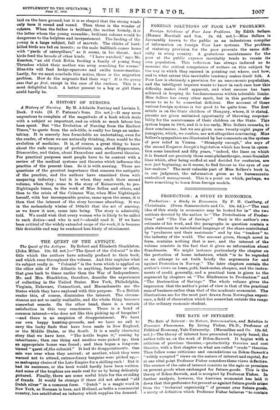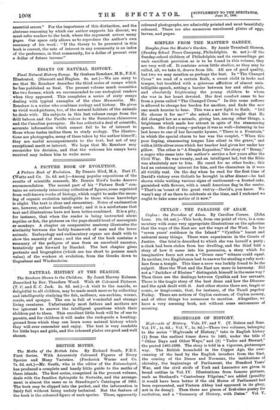THE KATE OF INTEREST,
The Rafe of Interest : its Nature, Determination, and Relation to Economic Phenomena. By Irving Fisher, Ph.D., Professor of Political Economy, Yale University. (Macmillan and Co. 12s. 6d. net.)—The theory of interest here presented is largely based, the author tells us, on the work of BiShm-Bamerk. It begins with a criticism of previous theories,—productivity theories and cost theories, with a first chapter on what are called " crude " theories. Then follow some criticisms and emendations on Biihm-Bawerk's "widely accepted" views on the nature of interest and capital, for at one vital point Professor Fisher considers these views defective. The essence of the rate of interest consists in the agio or premium on present goods when exchanged for future goods. This is the theory of Bohm-Bawerk, and is accepted by Professor Fisher. In further analysis, however, the Austrian economist has laid it down that this preference for present as against future goods arises from the "technical superiority" of present over future goods, a nicety of definition which Professor Fiaher believes "to contain essential errors." For the importance of this distinction, and the abstruse reasoning by which our author supports his dissent, we must refer readers to the book, where the argument covers many llages. Our space only allows us to reproduce the author's own summary of his work : "If the theory to be presented in this book is correct, the rate of interest in any community is an index of the preference, in that community, for a dollar of present over a dollar of future income."























































 Previous page
Previous page